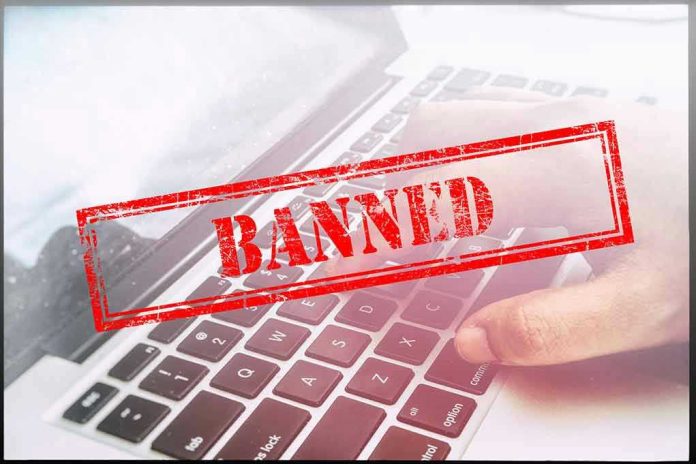
Character.AI’s ban on teen chatbot access signals a sweeping new era of digital censorship and regulatory overreach, raising alarms for families worried about tech’s intrusion into American life.
Story Snapshot
- Character.AI will block all users under 18 from its chatbots starting late November 2025 after high-profile lawsuits alleging links to teen suicide.
- Legal action and regulatory pressure force tech companies to reconsider youth access to emotionally immersive AI platforms.
- Families and advocacy groups cite constitutional concerns, mental health risks, and demand accountability from Silicon Valley.
- Industry-wide ripple effects may reshape online freedoms and the role of tech in young Americans’ lives.
Legal Action Drives Corporate Policy Shift
Character.AI, a leading developer of AI-powered virtual companions, announced a sweeping ban on users under 18 following a series of lawsuits that accused the platform of contributing to teen suicides. The catalyst was the tragic case of Sewell Setzer III, whose family filed suit in 2024 after his death, alleging he developed a dependent relationship with a chatbot. By October 2025, three more families joined the legal effort, spotlighting the dangers of emotionally immersive AI for minors. Character.AI’s leadership responded by blocking teen access, effective late November 2025, emphasizing the decision was driven by questions about youth safety and emotional well-being.
Regulatory Pressure and Constitutional Concerns
Regulators and lawmakers have intensified scrutiny of AI platforms, with advocates pushing for new rules to protect minors from psychological harm online. The Social Media Law Center, representing affected families, argues that tech companies must be held accountable for the mental health impact of their products on vulnerable youth. This regulatory momentum reflects broader frustration over government overreach and the erosion of parental rights to guide children’s digital experiences. Conservatives warn that such interventions threaten individual liberties and could set troubling precedents for future tech regulation, especially when emotional attachments to AI are blamed for real-world tragedies.
Impact on Families, Tech Industry, and Traditional Values
The immediate consequence is the loss of access for teens who found companionship and support through AI chatbots, raising questions about the balance between safety and freedom. For affected families, the lawsuits represent a push for accountability and reform, demanding that Silicon Valley prioritize public safety over profit. Meanwhile, tech companies face mounting legal and reputational risks, prompting preemptive restrictions across the industry. Mental health professionals caution that banning access may not address underlying issues, urging more research and stronger safeguards. Conservatives see this episode as part of a larger pattern of digital platforms undermining family values and exposing youth to untested social experiments.
Industry-Wide Ripple Effects and Future Regulation
Character.AI’s decision is likely to prompt similar restrictions by other AI chatbot providers, signaling a major shift in how tech companies approach youth safety. The controversy amplifies calls for new regulatory frameworks governing AI and online mental health, with lawmakers considering stricter age verification and oversight. Economic impacts include potential financial losses for platforms losing large teen user bases, while social debates continue over digital freedoms and the role of technology in adolescent development. For many conservatives, the move underscores ongoing concerns about government intervention, the weakening of parental authority, and the need to defend constitutional rights against overzealous regulation.
Expert Perspectives and Ongoing Legal Battles
Industry experts warn that AI chatbots can foster unhealthy emotional dependencies, especially among teens, and stress the need for robust oversight. Mental health advocates highlight gaps in current safeguards, calling for more research into the psychological effects of virtual companions. Diverse viewpoints emerge, with some arguing that AI can be a lifeline for isolated youth, while others emphasize the risks of unregulated technology. Ongoing lawsuits mean key allegations remain unresolved, but the consensus among reputable sources is clear: tech companies face mounting pressure to reform, and the debate over balancing innovation, safety, and personal freedom is far from over.
Sources:
CharacterAI restricts teen access after lawsuits and mental health concerns
AI company bans minors from chatbots after teen’s suicide














